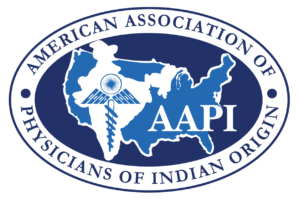- (630) 990 2277
- info@2022.aapiusa.org
CLEAN DRINKING WATER PROJECT
REQUIREMENTS & ROLES
Successful and sustainable operations lifecycle of Community Clean Water Programs depends on the following key requirements:
1. VILLAGE SELECTION CRITERIA AND RESPONSIBILITIES
• Cluster of 15 villages within a radius of about 60-80 km
• Population of village of 500 households and above
• Availability of raw water source that has been tested to be contaminated
• Willingness of village leadership to support the initiative on the terms proposed
• No proximity to existing water treatment suppliers operating in region
[Note: Telengana State has launched Mission Bhagiratha to supply piped water to every home, hence this region is not under consideration currently]
2. VILLAGE RESPONSIBILITIES – AGREEMENT WITH PANCHAYAT
• Provide continuous and sufficient raw water source for capacity of the water treatment plant –lower water levels will impact the functioning
• Provide site with a secure room to house water treatment equipment – concrete structure of 12’ x 15’ with foundations for treated water tank and raw water tank
• Provide electricity connection for the water treatment plant
• Residents pay nominal water consumption charges of in the range of Rs 5 to Rs 8 per 20 liters
• Promote consumption of treated clean water
• Commit to a goal of achieving consumption level that will cover the annual operating and maintenance costs
3. CPW RESPONSIBILITY
• Facilitate village selection criteria are met as per #1
• Establish the need for water treatment based on laboratory test and analysis of raw water source
• Establish Agreement with Panchayat with support of AAPI members
• Install water treatment plants
• Operate and maintain plants post-installation
• Collect water consumption charges per agreement
• Revenue from water consumption charges utilized towards expenses for:
o One local operator
o Electricity
o Maintenance
• Provide CPW services at zero profit, zero loss
o Until the village attains break-even point, where expenses for operations and annual maintenance are fully met from water consumption revenues, the gap is to be borne by sponsor.
4. AAPI MEMBERS RESPONSIBILITY
• Sponsor the Capital cost of water treatment plants for a tax deductible contribution of USD 5,000 per village
• Sponsor the Operating & Annual Maintenance cost estimated at USD 1000 per year tax deductible. This amount varies based on region-wise cost differences, volume of water consumption and the collections thus generated. Typically, it takes about two years of operations to break-even on this cost.
• Facilitate interactions with village leadership and support to execute requisite agreement with CPW
• Support outreach, education and advocacy to encourage consumption of treated water.
[Note: Villages will be selected based on #1 and #2 above]
